This post is also available in: Español (Spanish) Kreyòl (Haitian Creole)
In fall 2022, when summer break ended and schools across the world reopened, classrooms in Haiti sat empty. It wasn’t COVID-19 anymore; this time it was civil unrest. By December, only about half of the country’s schools had started up again. Since then, with ongoing insecurity in and around the capital affecting many aspects of daily life across Haiti, education is anything but consistent. School closures are a chronic problem in Haiti due to forces natural, political, social and economic. Haitian children currently enrolled in fifth grade have never had an uninterrupted school year. This fact spurred action by the Haitian Ministry of Education, who, with support from the Inter-American Development Bank, issued a call for distance learning tools.
WKKF grantee Blue Butterfly answered the government’s call. The international children’s programming network had been educating Haitian kids at home through TVs and computers with its show Lakou Kajou since 2015. In partnership with the WKKF-backed Model School Network (MSN), a coalition that promotes education innovation for some 200 Haitian schools, Blue Butterfly’s Lakou Kajou team went to work developing audio lessons based on the Ministry’s science curriculum for preschoolers through second graders. They hope their creations can help children learn at home through audio communications. They also hope, and have found, that they can introduce the same approach in schools as their TV show: Pou timoun ka aprann ak kè kontan, or for the joy of learning.
The need for distance learning in Haiti
Too many of Haiti’s children are not enrolled in school. Most don’t complete primary school, generally due to poverty or a lack of schools nearby. Even for those trying to go to class, their education has been under constant threat by political upheaval (including the president’s assassination in 2021), threats of violence (especially with the rise of gangs), natural disasters (an earthquake in southern Haiti in 2021 damaged or destroyed more than 1,000 schools), and unprepared or even absent teachers. Distance learning is needed but also particularly challenging in Haiti, where many homes have limited or no access to electricity, not to mention Internet.
Over the years, Lakou Kajou’s makers have reached Haitian children wherever they are, including bringing their programs into classrooms for teachers to use and sending short audio lessons to parents over WhatsApp. But now, for the first time, they were designing entire courses for use at home.
A distinctly Haitian children's TV program
Lakou Kajou grew out of a partnership between U.S.-based Blue Butterfly and several Haitian entities: Fondasyon MWÈM, Quisqueya University, Muska Group production company, and independent education consultants. After heading Sesame Workshop’s Global Education department for 20 years, Charlotte Cole teamed up with her sister, Suzanne, to create Blue Butterfly, which supports the production of children’s educational media in low-income countries. Lakou Kajou was inspired by Sesame Street’s model for developing fun educational media. However, the show, mostly animated and for 4-to-7-year-olds, is very much its own thing. As the program’s original head writer, Gilbert Mirambeau, told the Miami Herald, it is unique in that “it’s so Haitian.” All episodes are written and produced in Port-au-Prince, in Haitian Creole, and full of distinctly Haitian scenery and cultural references.
Nurturing the child explorer
For the science tool, the Lakou Kajou team recruited the TV show’s stars – brother and sister twins Tilou and Lili and a gecko named Zando, who performs the role of educational guide. And the Eksploratoryòm was born.
Since 2020, the Lakou Kajou team created 80 audio lessons, with student workbooks and teacher guides (40 for first graders, 40 for second graders). Lessons offer games, music and a sense of adventure, with prompts to get children using their bodies or looking around at their environments.

“The lessons are in the child’s language and culture, and designed to facilitate the child’s understanding,” said Jovanie Pade, program manager at Lakou Kajou, “and they are based on the approach at the core of Lakou Kajou: to learn through play, through fun.”
This, she said, is a true departure from traditional Haitian education, which emphasized rote learning. “In the Eksploratoryòm program, critical thinking is prioritized over memory. The child must understand, invent, create.”
The approach is part of a broader movement to expand the use of Haitian Creole in teaching science. Pade said that while many schools continue to center the teacher, the Eksploratoryòm’s child-centered approach involves drawing scientific examples from the reality and experiences of the students, and doing so in the child’s mother tongue.
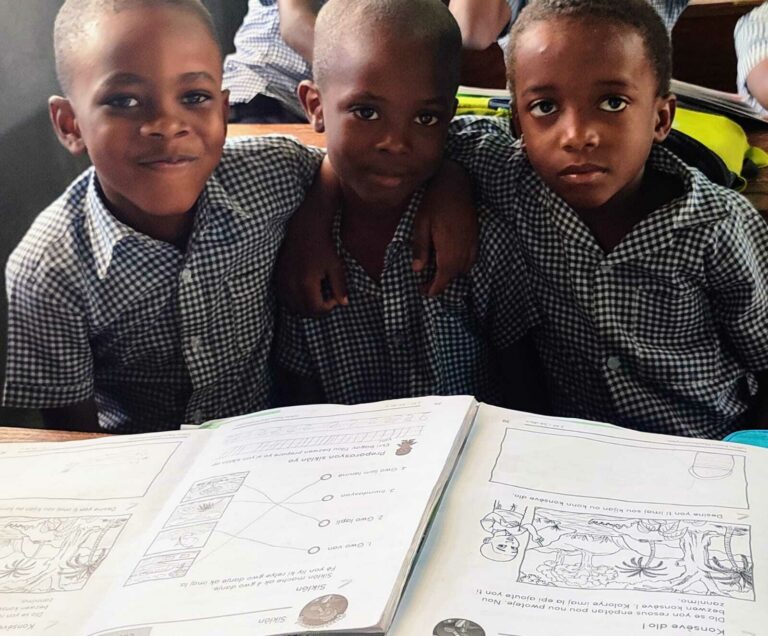
Making distance learning work
In 2021, the Eksploratoryòm was introduced into homes across Haiti as a pilot. Blue Butterfly, along with an independent researcher, completed a study of distance use of five of the Eksploratoryòm lessons. More than 17,000 unique users accessed the materials across all 10 of Haiti’s geographical departments, even in remote areas. Children listened to lessons over simple cell phones (which most Haitian families own), and then engaged in question-and-answer sessions about the audio lesson through a phone-based interactive voice response program provided by the mobile app company Viamo (with calling provided for free from Digicel). Thirty parent-child pairs were interviewed about their experiences.
“We are very pleased with the findings from this pilot,” said Suzanne Cole, co-executive director of operations at Blue Butterfly. “The phone-in platform holds a lot of promise for delivering distance learning.” Among the results: children had no difficulty navigating the system, 90% of parents reported that their children learned from the materials, and 93% said they wanted more content.
The entire Eksploratoryòm series of 80 lessons is now being formatted for use on this phone system. That work is being financed by Living Proof’s Women’s Leadership Solutions prize, a part of Massachusetts Institute of Technology’s Solve initiative, which recognized the women-led team behind the Eksploratoryòm.
“Of course, the best-case scenario is that children attend school regularly, because the ideal place for children to be is in classrooms, learning from teachers who are qualified and energized about what they’re doing,” Cole says. But recognizing that this is simply not the reality in many Haitian communities today, she has another vision: “What we would love to see is a system in place that can be invoked in communities when there are disruptions, and that were developed in partnership with the schools, so that the lessons that children are learning kind of translate seamlessly between school and home.”
Making classes relevant beyond the school walls
In 2021, at a time when schools were generally open, the Lakou Kajou team trained teachers at 15 MSN schools in Haiti’s Central Plateau, and teachers taught Eksploratoryòm lessons throughout the school year.
Researchers tested students at the beginning and end of the academic year. During the pilot process, project designers visited classrooms and, in some cases, recorded student participation and teachers talking about their experiences with the tool.
Those designers were struck by what they learned. Not only did students in Eksploratoryòm classrooms score higher on the end-of-year assessments than those in non-Eksploratoryòm classrooms (18% higher on average), but the teachers also reported on the value of the program. Comments from teachers included how much they loved the program because students enjoy it, engage, express their understanding, and learn better.
Josiane Hudicourt-Barnes, Lakou Kajou’s language and education specialist, was skeptical at first about the idea of an audio program teaching science because she deemed it at odds with her belief that science should be hands-on. But then she changed her mind.
“Even though we are offering a program that’s mostly sound-based, we try to bring in the other senses through the recording so that the kids won’t be just sitting and waiting for content that’s boring,” said Hudicourt-Barnes. She said that science is rarely taught in school in Haiti, and when it is, it is often irrelevant to the local environment. The children might be made to memorize the chemical composition of water, “rather than studying the bodies of water around them, or how do you use water in your everyday life, and why is water important to your health.”
Sara Wolf, MSN coordinator, agrees. “I’ve been in hundreds and hundreds of [Haitian] classrooms, and I rarely see a science lesson taught,” she said, “because teachers don’t feel like they have enough content knowledge.”
Wolf said she was surprised by how much the tool helped teachers. “It turned out to be a professional development program,” she said, “even though we thought it was a content development program.” Not only did the Eksploratoryòm lesson plans and teacher guides make science teaching less intimidating and less of a workload burden; they also provided a model for teaching in a way that engages students.
So, in the end, is the Eksploratoryòm a tool for distance or classroom learning? In Haiti, it needs to be both.
“They’re even more than a hybrid,” Cole says of the tool’s products and services. “They’re like a link between what goes on in the classroom and what can happen at home. And so we see it holds a lot of promise for allowing children to continue their education during these tumultuous times, and for teachers to learn some new approaches that can be used in the classroom.”
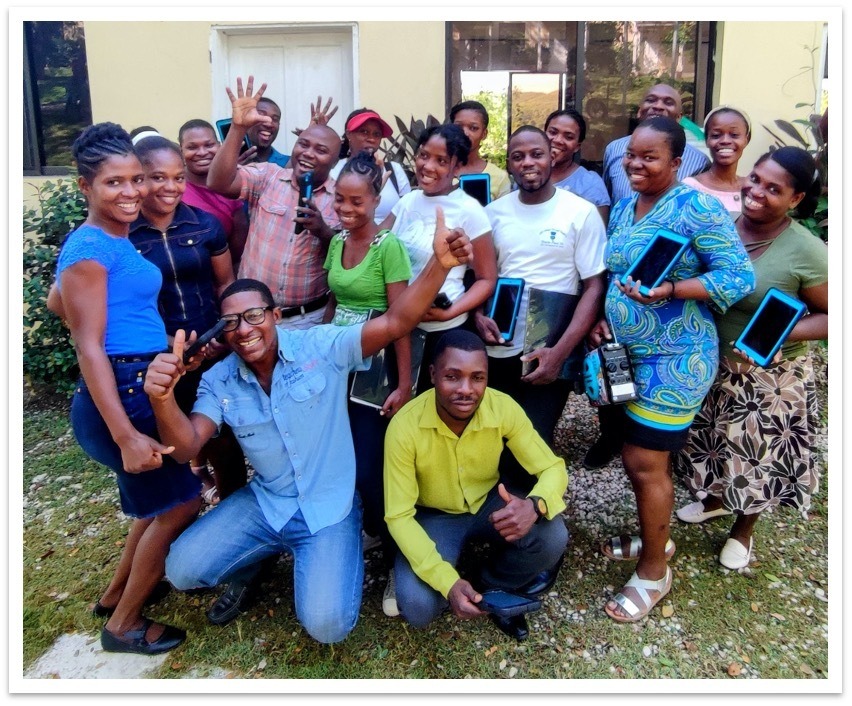
Looking ahead
During the 2023-24 academic year, the Eksploratoryòm will be in use in more than 100 schools, and the Lakou Kajou team is partnering with the Global Center for the Development of the Whole Child and Catholic Relief Services to expand the program through fourth grade. The team is also developing a similar program for social sciences and hopes to eventually do so in math and other subjects – all in concert with the standards of the Ministry of Education.
Meanwhile, the team continues to work to develop the mechanisms to allow the Eksploratoryòm to effectively reach children in their homes. And if the tool is adopted by the Ministry for classroom use, it could be deployed to public schools across the country.
In an interview on Haitian state television in 2022, Jovanie Pade described how she sees the impact of the Eksploratoryòm going well beyond both school and home.
“We really want to develop a generation, not just of good students but of leaders who are ready to get engaged,” she said, “because when a student makes her own discoveries, she understands what she’s learning, especially in her own language, and she’s ready for invention, too. She is ready to go and change the world.”

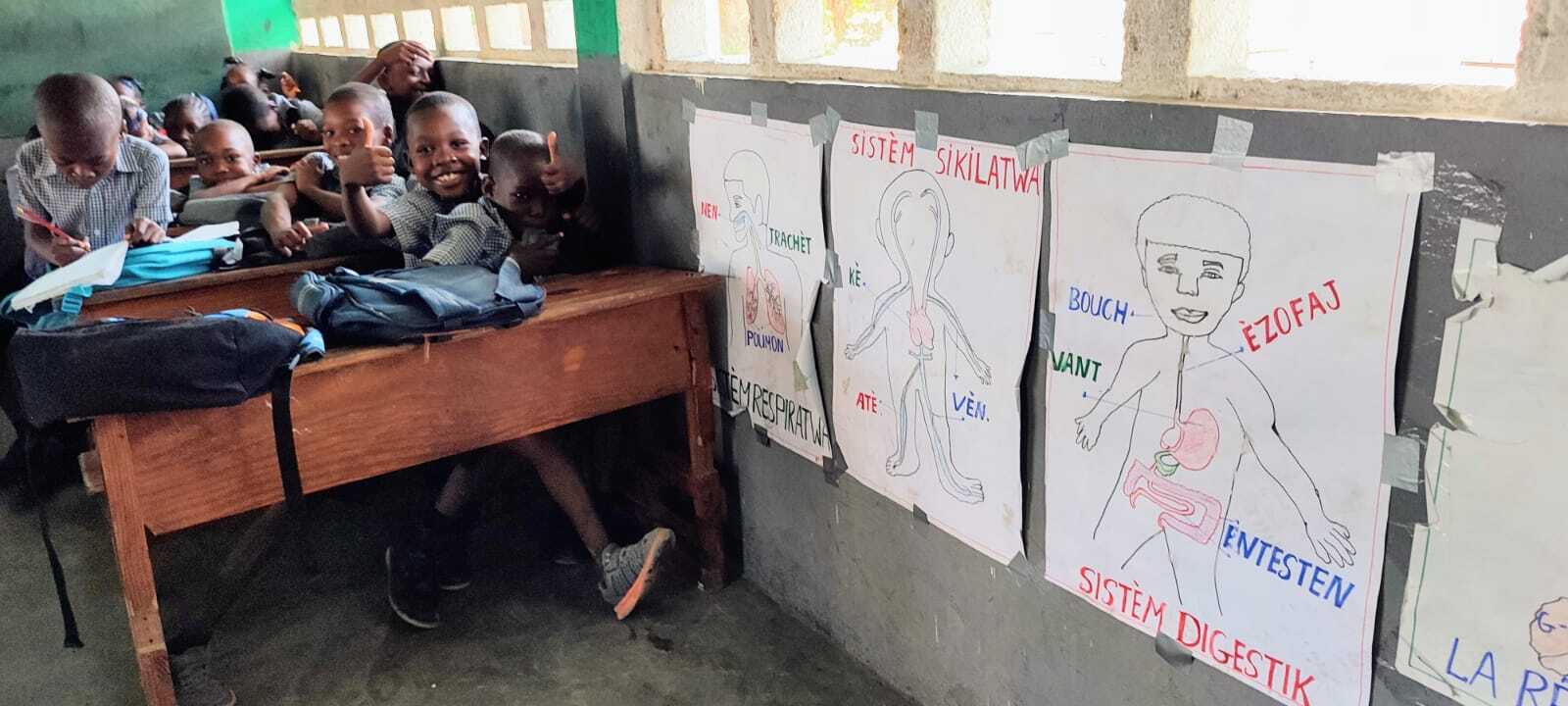
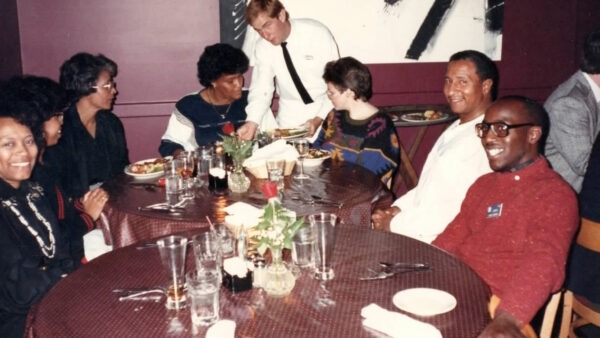
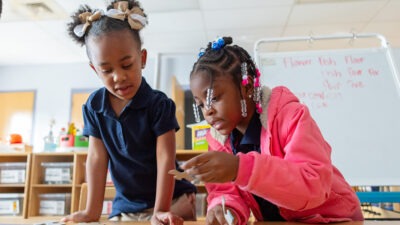
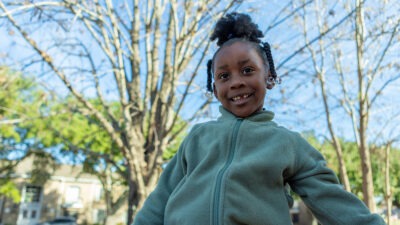
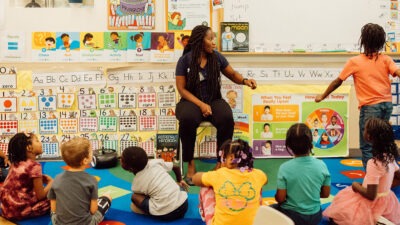


Comments